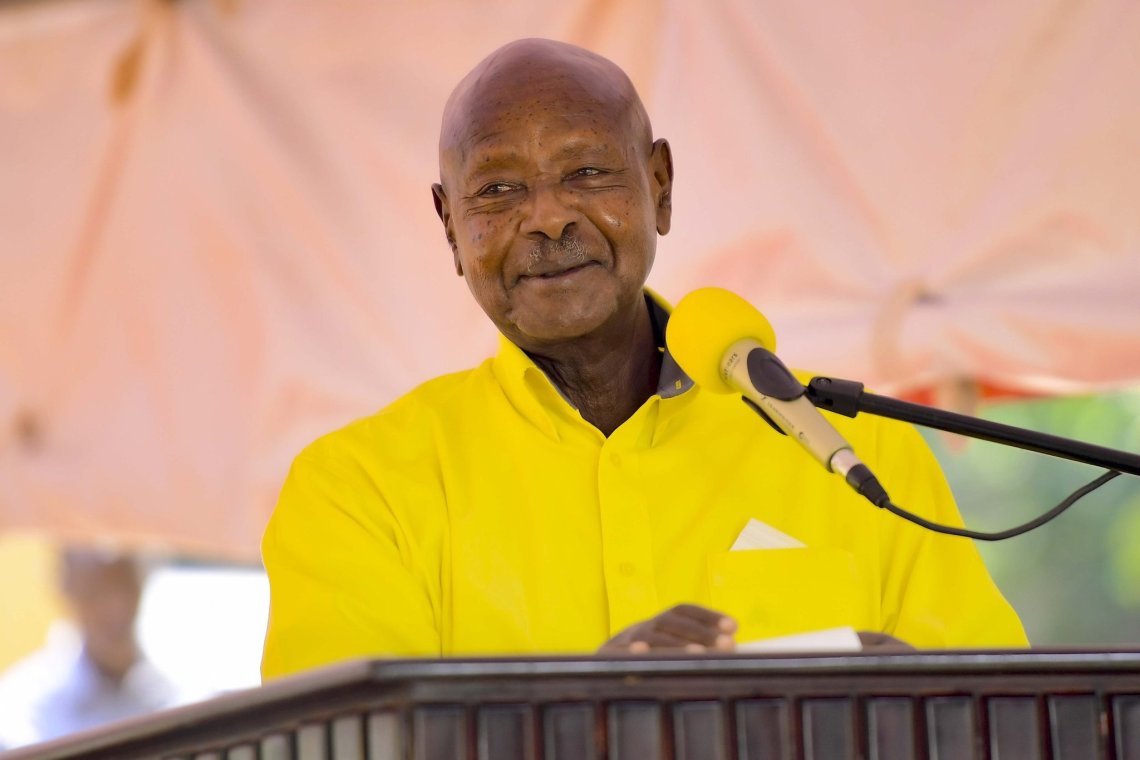As President Yoweri Kaguta Museveni gears up for the 2026 general election, his latest campaign promise — a new “Graduate Fund” targeting unemployed university graduates — has become one of the most talked-about proposals in his bid to extend his rule beyond four decades.
Unveiling the plan at the Kololo Independence Grounds during his campaign launch, President Museveni announced that any university graduate who has remained unemployed for two years after completing their studies will be eligible for financial support through the Graduate Fund.
The initiative aims to help young Ugandans start small businesses instead of waiting for formal employment. Each eligible graduate will reportedly receive startup capital to kick-start a venture, with the government promising to provide both funding and basic entrepreneurship training.
The Graduate Fund is the latest addition to a string of wealth-creation programs under the NRM government, joining initiatives like the Parish Development Model and Emyooga. Museveni emphasized that the goal is not simply to create jobs, but to empower youth to become job creators themselves.
Uganda’s youth unemployment rate remains one of the highest in the region. Every year, tens of thousands of graduates leave universities and tertiary institutions with limited opportunities for formal employment. Many turn to informal work or remain dependent on their families years after graduation.
Against this backdrop, Museveni’s announcement is seen as both a social and political move. The youth make up over 70 percent of Uganda’s population and represent a critical voting bloc. By targeting this group with direct economic incentives, the NRM hopes to win renewed support among the educated but jobless young Ugandans who have grown increasingly frustrated with the status quo.
Despite the excitement surrounding the proposal, the specifics of the Graduate Fund remain vague. The government has not yet disclosed the total budget, how funds will be distributed, or whether they will be issued as grants or loans.
It is also unclear how beneficiaries will be identified and monitored to prevent abuse or political favoritism — concerns that have dogged previous youth-empowerment initiatives.
Past programs such as Emyooga and youth SACCOs faced challenges including delayed disbursements, corruption, and limited oversight. Many young people fear the new Graduate Fund could face similar pitfalls if not carefully managed.
Among graduates, the reaction has been mixed. Some see the proposal as a long-overdue intervention to help bridge the gap between education and employment. Others are sceptical, viewing it as a campaign tool likely to fade after the elections.
“I think the idea is good, but we’ve seen promises like this before,” said one Makerere University graduate. “If the government can make it real, it would change lives — but we’ve learned to wait and see.”
The announcement comes just months after President Museveni confirmed his bid for re-election. With opposition figures like Bobi Wine promising a generational shift, Museveni’s focus on youth funding is widely interpreted as an attempt to secure loyalty among younger voters who have grown restless with his decades-long leadership.
Observers say the Graduate Fund underscores Museveni’s campaign message that the NRM remains the party of opportunity and economic empowerment. However, critics argue that tying such major economic interventions to an election risks politicising development and weakening accountability.
For the Graduate Fund to succeed, experts say transparency and proper management will be key. The government will need clear criteria for eligibility, independent oversight mechanisms, and consistent follow-up to ensure that funds are used productively.
If implemented effectively, the fund could help thousands of young Ugandans transition from job seekers to entrepreneurs — a major step toward reducing youth unemployment. But if it stalls or collapses like some previous programs, it may deepen public distrust and reinforce perceptions of empty campaign promises.
As the 2026 elections approach, the Graduate Fund has become more than just an economic policy. It’s a test of trust between Uganda’s young people and a president who has led the country since 1986.
For Museveni, delivering on this promise could strengthen his legacy as a leader committed to youth empowerment. For the millions of jobless graduates waiting for change, it could mean the difference between surviving and thriving — or just another headline in a long line of political pledges.








